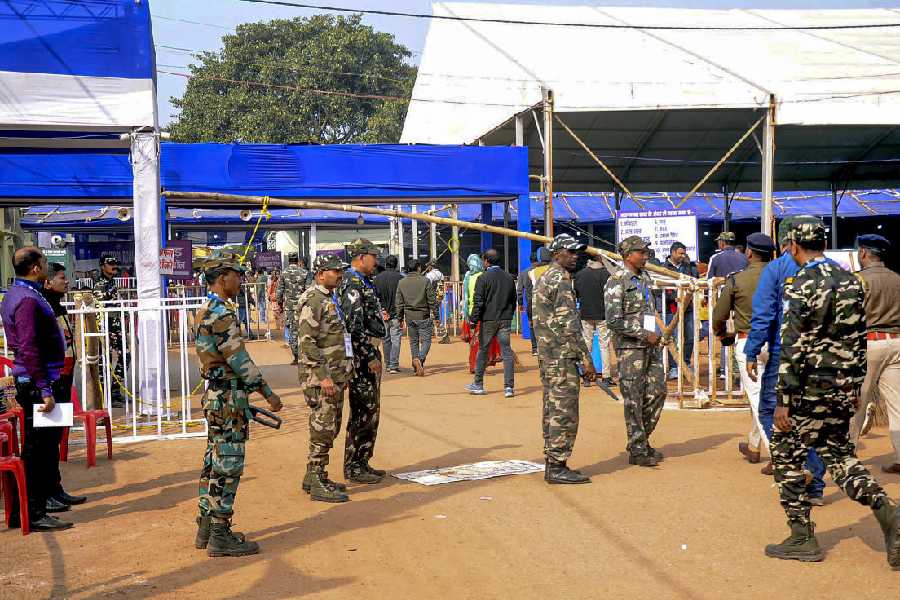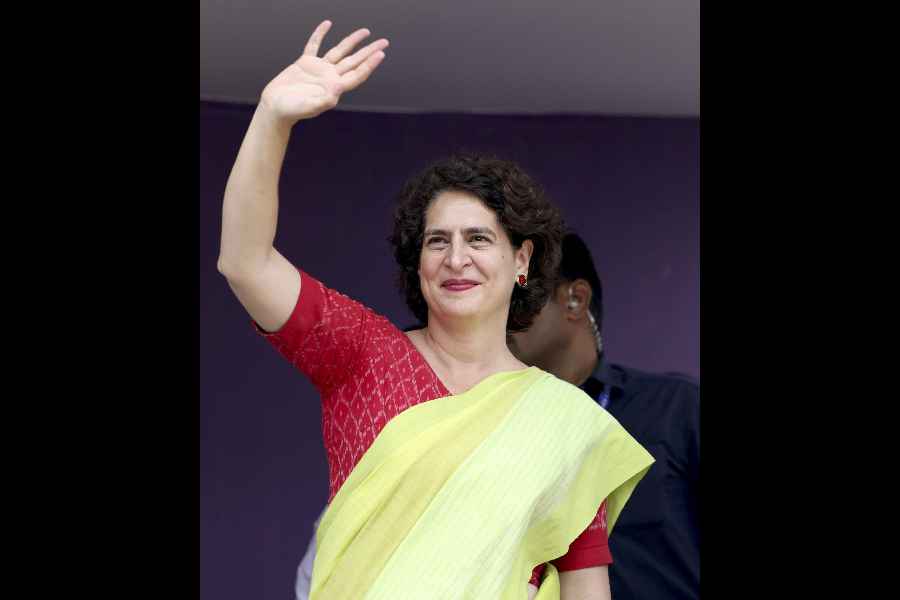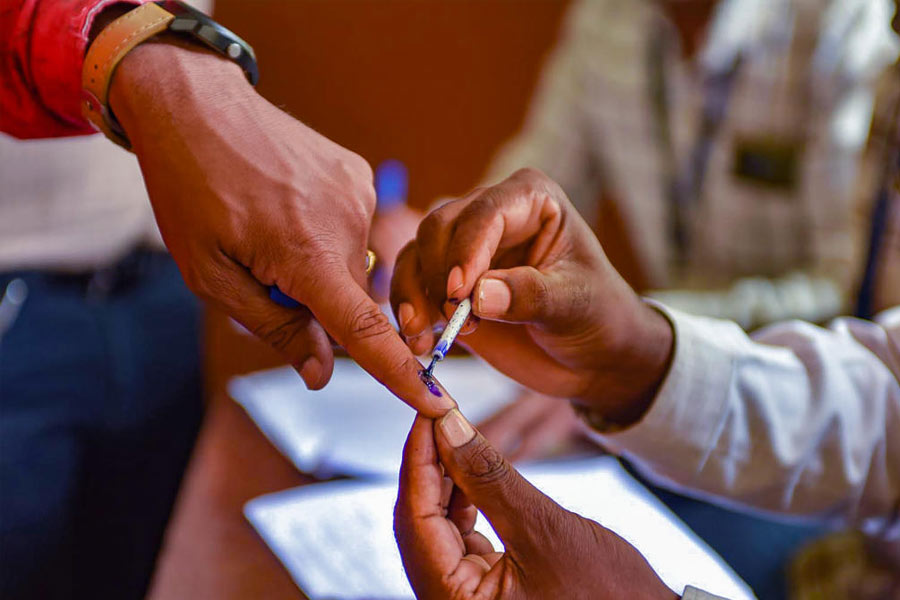Sir — Ostriches, the myth goes, bury their heads in the sand when they are in danger. While the real-life ostrich is smarter than that, the president of the United States of America, Donald Trump, clearly is not. While across the world, there are efforts to ramp up testing, Trump claimed at a rally that he had told officials in his administration to slow down coronavirus testing because of the rising number of cases in America. The pandemic has laid bare several realities — one of them is the true face of leaders across the world. Unlike their president, one hopes that the majority of Americans will not keep their heads buried in the sand.
Rima Roy
Calcutta
Licence to destroy
Sir — India’s first-ever report on climate change — Assessment of Climate Change over the Indian Region — by scientific institutions under the government is very welcome and timely (“Weather report”, June 19). India is a member to the Paris Agreement on climate change and therefore a party to the global action committee in charge of taking mitigatory actions against climate change. By now it is well-known that the threats posed by climate change are multiplying and the cost of these changes on human life will be unimaginable.
However, it must be kept in mind that both the Paris Agreement and the new report are data intensive and heavy on technological jargons that mean little to most people. Raising awareness has no substitutes and should not be overlooked. For instance, the Bengal delta — the Sunderbans especially — is extremely vulnerable to climate change. Would people there rather have awareness about the issue so that they can learn to take mitigatory action and participate in change or would they rather have countries bringing out lengthy, dense documents?
A well-laid-out action plan should involve scientists, activists and thinkers, as well as actual people on the ground.
Ronodeep Das
Calcutta
Sir — The Assessment of Climate Change over the Indian Region has predicted that India will experience warmer days and nights along with frequent spells of heavy rainfall leading to floods by the end of the 21st century. Yet, the new Environment Impact Assessment 2020 draft notification expands the list of projects that are exempted from public scrutiny like the work related to the modernization of irrigation projects, plant constructions, mining activities, inland waterways, widening of national highways and so on. The draft relaxes the stringency in public consultation by reducing it to 20 days from the current 30-days’ time period and also the post-environment clearance monitoring system. The new notification also deviates much from the older one by extending the time allotted for compliance report submission. The promoter is now free to take a year to submit the report.
It is clear that the current dispensation has no regard for the climate or for India’s rich biodiversity. The new draft EIA is a red rag to the industry bulls to go ahead and raze the country’s forests to the ground to make way for industry. Ease of doing business should not be turned into ease of wanton destruction of the planet, which is exactly how things are at the moment.
Aditya Bannerjee
Gurgaon
Reach out
Sir — Now that everyone imaginable has had their 15 minutes of fame by milking the unfortunate incident surrounding the death of Sushant Singh Rajput, it is important to ponder some of the questions that the episode raised. It is encouraging that people are openly discussing depression — a condition that can be debilitating but is mostly treated lightly and wrongly equated with sadness.
Several people put up posts on social media reminding their friends and acquaintances to just pick up the phone and reach out. But that is not how depression works. A person who is clinically depressed can rarely reach out — the illness saps all strength, both physically and emotionally. Moreover, lack of self-worth — another symptom — means that people cannot reach out since they often think they do not deserve help.
Putting the onus of reaching out on the person who is depressed is taking the easy way out. The responsibility of reaching out should lie on friends and family. Such efforts might be met with unwillingness to open up or even rudeness. But one must persevere. Raising awareness about depression is very important too — given how little people know about it, a person might not even know they are in need of help.
Abhisekh Kumar
Patna
Sir — Celebrity suicides and testimonies of dealing with depression attract our attention to mental health because it is the only explanation we can imagine for a person of privilege ending his or her life. But it is the poor, dispossessed and marginalized who bear the greatest burden of mental health problems. Yet, it is not uncommon for us to dismiss their sufferings as a natural extension of their socio-economic conditions. This is the segment that will be disproportionately affected by the economic recession that is setting in. One can only imagine the number of people who will be driven to take the same step as Sushant Singh Rajput. Will anyone shed tears for them?
S. Dutta
Calcutta










